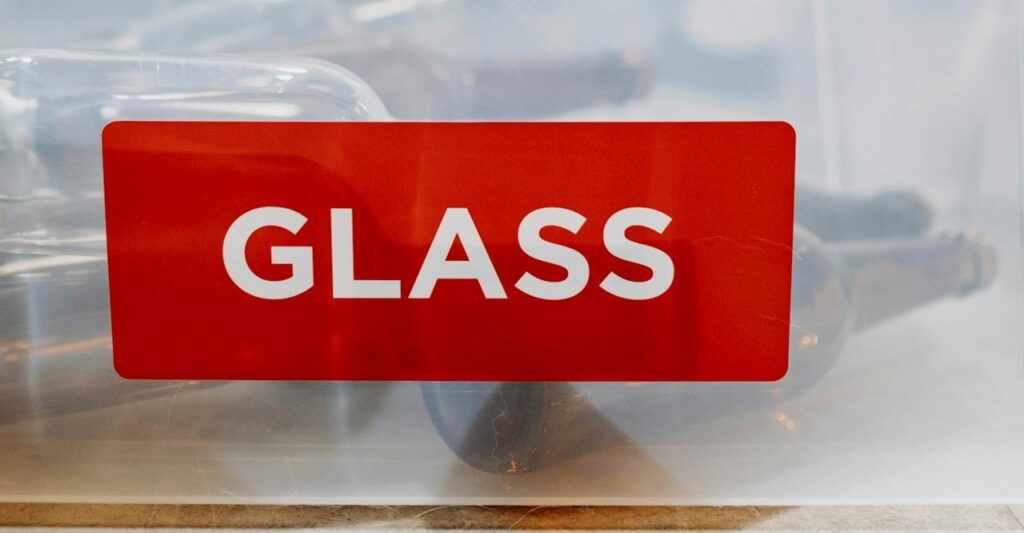- Last Updated: October 22nd, 2025
- Recycling contamination reduces the quality of recyclable materials, and threatens large volumes of materials being unable to be recycled.
- In 2024, 82% of citizens placed non-recyclable items in recycling bins, a slight increase from 81% in 2023.
- Waste segregation ensures processes used at recycling facilities can operate smoothly, increasing the volume of waste recycled successfully.
- On the 31st of March 2025, new Simpler Recycling legislation came into force in a bid to standardise recycling and waste collections.
How To Reduce Contamination In Recycling
In 2024, 82% of citizens placed non-recyclable items in recycling bins, a slight increase from 81% in 2023. To ensure a smooth recycling process, households and businesses must ensure they are eliminating the risk of contaminating materials entering the recycling stream.
This contamination reduces the quality of recyclable materials, and threatens large volumes of materials being unable to be recycled.
5 Ways To Avoid Contamination In Recycling For Your Business
Segregate Waste Streams
Whether you generate paper, cardboard, plastic, or hazardous materials, all of your waste should be segregated into their specific waste types. Waste segregation ensures processes used at recycling facilities can operate smoothly, increasing the volume of waste recycled successfully.
As a business, you are also obliged to manage your waste properly. Under the Waste Regulations 2011 it is required that paper, cardboard, plastic, metal, and glass be segregated at the source, unless it’s not technically or economically feasible.
New regulations have also been introduced in recent years to reduce contamination, set to come into effect from 2025/26. The Simpler Recycling legislation is a major reform introduced in England by the Department for Environment, Food & Rural Affairs (Defra) aimed at standardising how recycling and waste collections are carried out, both for households and businesses.
The Simpler Recycling is a legislative framework that:
- Sets a core set of materials that must be collected separately for recycling both by households and by non-household premises.
- Aims to end the “postcode lottery” where different councils collect different recyclables, causing confusion.
- Ensures businesses with 10 or more full-time equivalent employees will separate their waste into three streams: general waste, dry recycling (paper, card, plastic, metal, glass), and food waste.
- Supports the move toward a circular economy, reducing waste and driving higher recycling rates.
Rinse Items
Rather than a quick rinse, ensure waste such as those storing food waste are washed properly. These packaging materials are commonly contaminated by food residue.
Packaging such as takeaway containers, jars, and cans should be rinsed thoroughly before being placed in the recycling bin. Properly cleaned items improve the overall quality of recycled materials and prevent entire batches from being rejected.
Conduct A Waste Audit
A waste audit helps businesses identify where contamination is occurring and which materials are not being recycled correctly. By evaluating the types of waste your business generates and assessing how they are disposed of, you can implement targeted improvements. An audit may reveal problematic practices, such as employees improperly disposing of plastic bags or combining materials with recyclables.
Regular waste audits not only improve waste management but also align your business with environmental regulations and sustainability goals.
Train Employees
Employee awareness is key to preventing recycling contamination. Provide regular training on best practices for recycling, such as how to identify recyclable items, the importance of rinsing materials, and the proper use of recycling bins.
Use clear signage to label bins and communicate what can and cannot be recycled. Empowering your team with knowledge ensures everyone contributes to your company’s recycling efforts.
Implement Clear Bin Labelling Systems
For businesses, a key strategy to reduce contamination in recycling is to establish a clear and standardised bin labelling system. Misplaced waste often results in contaminated recycling, which can render an entire load of recyclables unsuitable for processing.
You can use distinct colours for different bins, visual aids, and strategically positioned placement of your waste containers.
Recycle Your Waste With Our Team
If your business generates large volumes of waste, get in touch with our team to book a collection. We collect a range of materials, including hazardous waste, chemicals, batteries, electrical equipment, solar panels, cardboard and paper, and much more. Our team operates across the UK, providing businesses with a seamless, sustainable disposal service.


